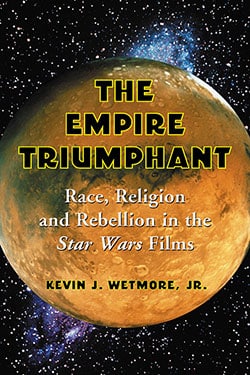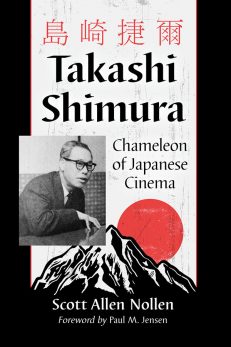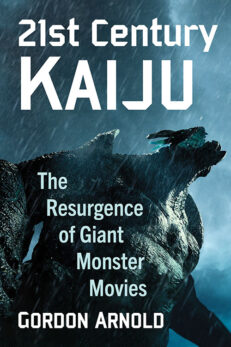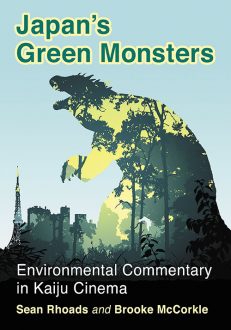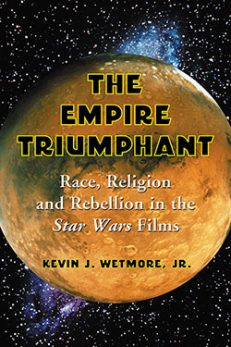The Empire Triumphant
Race, Religion and Rebellion in the Star Wars Films
$29.95
In stock
About the Book
George Lucas’s first Star Wars trilogy shows the influences of its era; Cold War tension is evident in its theme of rebellion against totalitarianism. Recent entries in the Star Wars saga—The Phantom Menace (1999) and Attack of the Clones (2002)—are much more concerned with evil corporations, terrorists, and the corruption of the political process. Each film is influenced by the times in which it was released, but also by cultural subtexts and by other films that had direct and indirect effects on Lucas as writer, producer, and director.
This work focuses on all six Star Wars films. The first topic of this multifaceted examination is how the films use the language of colonialism (“The” Rebellion, “The” Empire) to emphasize the idea of imperialism. Next the author looks at how Asian influences—including religious undertones from Taoism and Buddhism and the works of Kurosawa and other Asian filmmakers—provide a subtext for much of the action. Next the discussion turns to the representation of people of color in the Star Wars universe, and how other ethnicities are represented overall, particularly through the literalization of the word “aliens.” These topics of discussion provide for penetrating conclusions about Lucas’s films and how they represent race, religion, and rebellion.
About the Author(s)
Bibliographic Details
Kevin J. Wetmore, Jr.
Format: softcover (6 x 9)
Pages: 224
Bibliographic Info: 2 photos, notes, filmography, bibliography, index
Copyright Date: 2005
pISBN: 978-0-7864-2219-7
eISBN: 978-1-4766-1171-6
Imprint: McFarland
Table of Contents
Acknowledgments vii
INTRODUCTION: Of Fanon and Fanboys 1
1. Frantz Fanon in a Galaxy Far, Far Away, or What Is an Empire Without Colonies? 19
2. The Power of Mythmaking / May the Tao Be with You: Myth, Religion and Star Wars 78
3. “Help Me, Kurosawa Akira, You’re My Only Hope”: Asian Culture and Star Wars 102
4. “Making the Galaxy Safe for White People”: People of Color in the Star Wars Universe 126
5. “Bridge on the Planet Naboo”: Asians (and Others) as Aliens 151
CONCLUSION: The Empire Triumphant: Cultural Appropriation and Postcolonial Discourse 184
Chapter Notes 189
Filmography 201
Bibliography 203
Index 209
Book Reviews & Awards
- “shows the influences of its era…theme of rebellion against totalitarianism…evil corporations, terrorists, and the corruption of the political process…the discussion turns to the representation of people of color in the Star Wars universe, and how other ethnicities are represented overall, particularly through the literalization of the word ‘aliens’…penetrating conclusions about Lucas’s films”—SFRevu
- “looks at elements of colonialism and imperialism in the two trilogies and pinpoints Asian influences, including Taoism, Buddhism, and the works of Akira Kurosawa”—South Dade News Leader
- “George Lucas has been making a galaxy far, far away safe for white people…primarily about perceptions of the films as seriously marred by racism, colonialism and improper culture appropriation”—Fort Worth Star-Telegram

